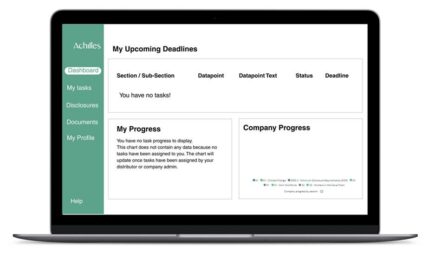Nearly all U.S. public companies may begin complying with the Securities and Exchange Commission’s (SEC) upcoming climate-related disclosure rules regardless of when they become law, yet most companies admit that they face technology, staffing and budget challenges in meeting the rules’ requirements, according to a new survey by global professional services firm PwC and business data and reporting solutions provider Workiva.
For the study, PwC and Workiva commissioned a survey of 300 senior-level corporate executives at U.S.-based public companies with at least $500 million in revenues.
The SEC released its proposed climate disclosure rules in March 2022, which would require U.S. companies to provide information on climate risks facing their businesses, and plans to address those risks, along with metrics detailing the companies’ operational climate footprint, and in some cases emissions emanating across their value chains. With nearly 15,000 comments received on the proposals, the release of the finalized rules has been delayed, and are now scheduled to be released in April, with adjustments expected.
The rules will likely see pushback from Republican politicians once released, with Congressional leaders recently writing to SEC Chair Gary Gensler, arguing that the rule exceeds the commission’s authority, and that a climate disclosure rule “in any form,” would “harm consumers, workers, and the U.S. economy.”
The PwC/Workiva report found, however, that U.S. corporate leaders have already largely embraced ESG reporting, and that most plan to push ahead to comply with the SEC’s climate-related disclosure rules even if the legislation is delayed. Only 2% of survey respondents said that they will wait until the final rule is published to proceed with compliance, while 70% planned to proceed regardless of the timing of publication, and 28% may push ahead depending on the potential timeline.
The executives also indicated that the SEC’s proposals have advanced their sustainability reporting initiatives, with 95% reporting that their companies are prioritizing ESG reporting more now than before the proposed rules were released, and 89% saying that they are already reporting some ESG data now.
Kevin O’Connell, Trust Solutions ESG Leader at PwC, said:
“Many ESG issues can be material to a company’s core strategy and long-term value creation. Regardless of when the SEC rules are finalized, investors and stakeholders have made clear: this is important. Companies should be preparing by transitioning to investor-grade and tech-enabled reporting to help accelerate their reporting process, and looking to implement effective governance and internal controls.”
Despite the widespread acceptance of ESG and climate-related reporting, however, the survey also indicated that many companies may not yet be ready to comply with the SEC’s proposed disclosure rules, with many executives expressing concerns about technology and staffing gaps, as well as the potential cost of compliance, and some companies saying that they will need more time to meet the rules’ reporting requirements.
While nearly all (97%) executives surveyed said that they anticipate that technology will play an important role in meeting the SEC’s climate-related reporting requirements, 85% said that they were “somewhat” or “very” concerned about not having the right technology in place, and 32% reported that their companies are not yet using technology to help with ESG reporting. Smaller companies were less confident on this front, with more than 90% of companies with revenues under $5 billion expressing readiness concerns, compared to 65% of larger companies.
Many companies also expressed staffing concerns to meeting the SEC rules, with 36% of executives surveyed reporting that they are not fully confident that their companies are appropriately staffed to meet the climate-related reporting requirements. In contrast to the technology concerns, smaller companies reported greater staffing readiness, with 70% reporting that they were “very confident” that they were staffed appropriately to meet the rules’ requirements, compared to only 61% of larger companies.
While the SEC has released estimated costs for complying with its proposed rules, predicting first year costs at $640,000, the executives surveyed indicated that they expect the cost to exceed this level. 61% of the executives said that they anticipate that their companies will spend more than $750,000 in the first year of compliance, including more than 25% who expect the cost to exceed $1 million.
When asked about timelines to begin reporting the required climate-related information, at least 70% said that two years would be reasonable, and nearly a quarter said that they would like at least three years to comply with the requirement to disclose detailed plans to meet their advertised environmental claims.
The report also found that assurance is expected to play a major role in managing risks and meeting requirements for climate-related reporting. 96% of respondents anticipated using independent assurance, regardless of whether this requirement is included in the SEC’s final rules.
Julie Iskow, President and Chief Operating Officer at Workiva, said:
“Having the right technology, people, and timelines will be critical to complying with the proposed rule changes and other stakeholder demands for ESG transparency. Our research also indicates that independent assurance is expected to play a major role in companies meeting expected requirements. ESG reporting is complex, requiring the ingestion, capture, management, and reporting of financial and non-financial data from many disparate sources.”
Click here to access the PwC/Workiva report.
The post 98% of Companies May not Wait for SEC Climate Disclosure Rules to Become Law to Begin Reporting: Survey appeared first on ESG Today.



